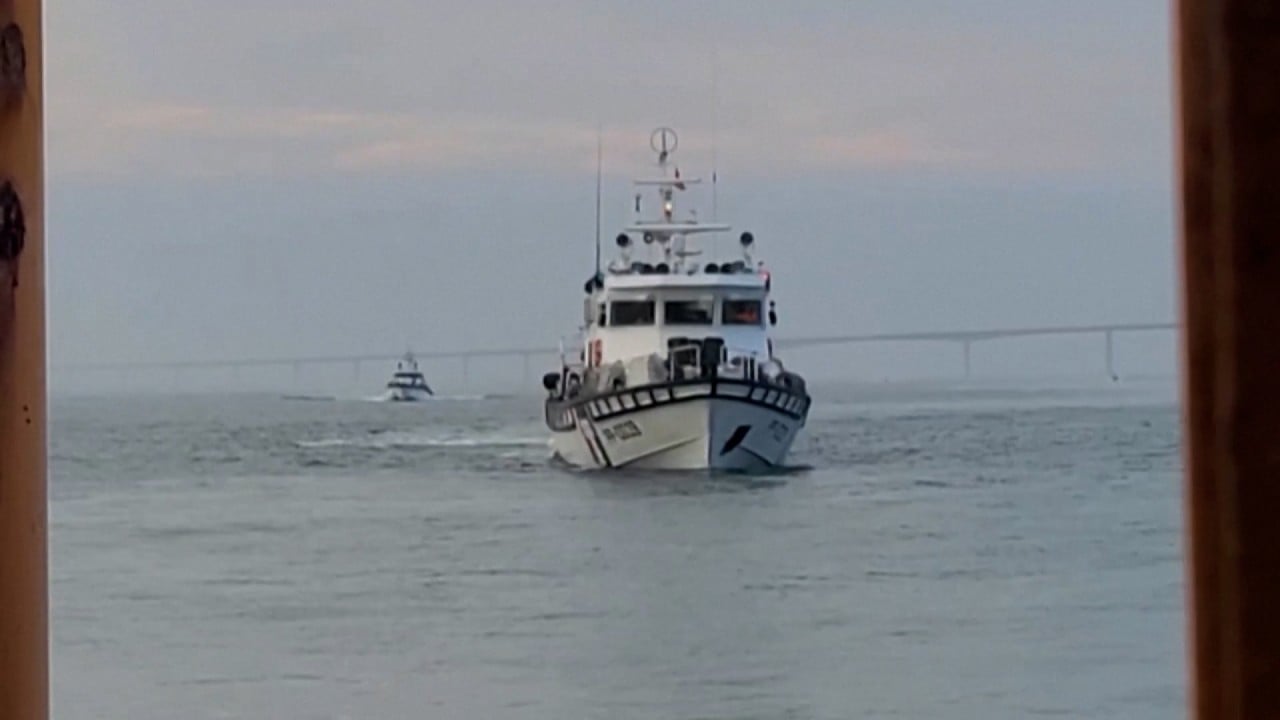
Taiwan poll reveals ‘big gap’ between defence chief, public over military threats
- New survey finds half of Taiwanese do not think war with mainland is imminent despite escalating cross-strait tensions, threats
- Results at odds with defence minister’s ‘worries’ over risks of potential conflict
Half of the people of Taiwan do not think the island is on the brink of war with mainland China, despite escalating cross-strait tensions and warnings from military chiefs at home and abroad, a new poll has shown.
At a legislature meeting in Taipei on March 7, Chiu said that amid spiralling hostility, the cross-strait situation was so “stringent” that he could not “sleep well at night”, and that he “worries” that war could break out unintentionally.

But despite the elevated tensions, a majority of people in Taiwan disagreed with Chiu, according to the independent Taipei-based polling agency.
In the island-wide survey released on Tuesday, only 37.1 per cent of the respondents shared Chiu’s concerns compared with 50.4 per cent who did not. The remaining participants said they were not aware of the comments.
The poll of adults aged 20 and over also showed 51 per cent of the supporters of the ruling, independence-leaning Democratic Progressive Party (DPP) disagreed with Chiu, versus 39 per cent who agreed with him.
Fifty-nine per cent of supporters of the smaller Taiwan People’s Party disagreed with Chiu’s remarks as opposed to 34 per cent who said they felt the same.
China’s growing defence budget targets combat readiness, ‘preparation for war’
Supporters of the mainland-friendly main opposition Kuomintang party (KMT) also mostly disagreed with Chiu’s opinions – 50 per cent – compared with 40 per cent of respondents who shared the defence minister’s concerns, according to the survey.
Many KMT politicians believe war is inevitable and imminent because of what they say has been the confrontational cross-strait policy of the DPP.
“The findings convey a subtle message, that is, there is a big gap between the public’s understanding of the cross-strait situation and the defence minister’s,” the agency’s head, Michael You Ying-lung, said.
The gap either showed that the Taiwanese public was uninformed about the cross-strait situation or that the respondents felt Chiu was merely exaggerating, You said. “Which one is true? This is a serious question.”
It was “interesting to note” that most KMT supporters did not feel the same way as Chiu, You said.
In an interview with Taipei-based CommonWealth Magazine last month, Chiu warned that the island must be ready for war with the mainland and bolster its combat preparations.
In the three years since Aquilino took command, the PLA had added more than 400 fighter jets and more than 20 major warships, he said, adding that the PLA had also doubled its inventory of ballistic and cruise missiles since 2020.
Like most countries, the US does not officially recognise Taiwan as independent but is opposed to a forcible change in the status quo.
Amid Taiwan tensions, Beijing reveals it is building aircraft carrier No 4
Taiwan’s intelligence chief Tsai Ming-yen said in a legislature meeting on Wednesday that 2027 is an important year for Xi, who will be “seeking his fourth term” as the mainland leader and “striving to attain the goals set for the 100th anniversary of the founding of the PLA” to largely bolster the mainland’s military power in the region.
Cross-strait relations soured in 2016 after Tsai Ing-wen of the DPP was elected president and refused to accept the one-China principle. Beijing has since ramped up military and diplomatic pressure against Taiwan.
Hostility spiralled further last month after the two sides traded blame over the deaths of two mainland fishermen who died as they were pursued by the Taiwanese coastguard on February 14.
Taiwan insisted it was merely enforcing the law by ordering the fishermen to stop for inspection after their unregistered and unlicensed speedboat entered waters off Quemoy, also known as Kinmen.
Beijing – which regards Taiwan as part of China and has never renounced the use of force to bring it under its control – accused the Taiwanese coastguard of using “violent and dangerous methods” in their pursuit.


